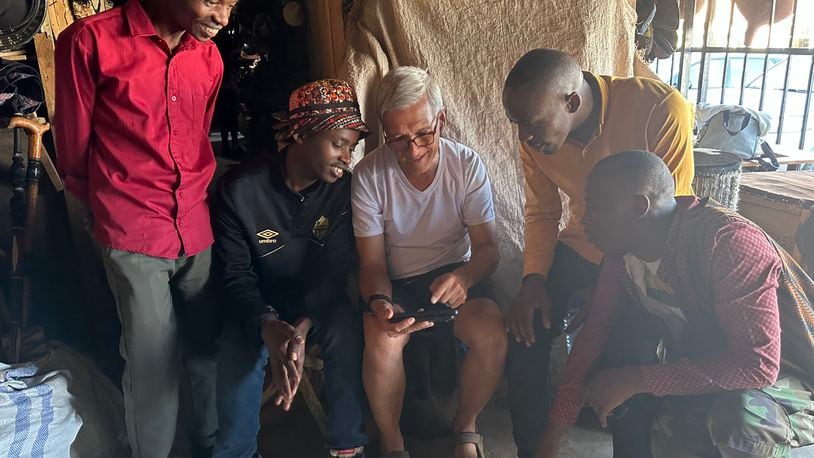One asked how I told the genocide story to people in America, so I pulled out my cell phone and started showing them pictures from a typical school presentation.
We talked about relationships that I formed with the genocidal government officials and how these relationships allowed me to move through the roadblocks — places of death for anyone with a Tutsis ID card.
I told these young men about my Rwandan colleagues and I did our best to bring food, water and medicine to several orphanages around the city. The parking lot of the largest orphanage was quickly becoming a cemetery simply because the kids were without water, dying from diarrhea.
I went on to explain “Gacaca,” the community courts that were set up in response to the hundreds of thousands of people accused of betraying, raping and killing their neighbors.
These new market friends were not letting up with their questions, so we dove into a conversation about what fear does to our brain. I introduced them to what Dr. Dan Siegel, a clinical professor at UCLA’s school of medicine, calls the “upstairs brain” (prefrontal cortex) and the “downstairs brain” (amygdala). I explained how Rwanda had been at war for three years before the genocide and how people traumatized by war easily went into their fight-or-flight, downstairs brain even when the reason for fear was imaginary.
We would pause every so often as one of the young men, who was fluent in English, translated for others.
Fear can drive us to commit horrific acts, acts our upstairs brain (which deals with logic, empathy and creativity) would normally rebel against. We even got into the concept of neuroplasticity and how a person could rewire their brain, but also serve as a powerful tool for the way we see others as well as ourselves.
The crowd understood how the origin of Rwanda’s genocide was not in hatred between Hutus and Tutsis, but born in the minds of those greedy for power and masters at manipulating ordinary men and women to see the enemy in their neighbors.
Toward the end of our 30 minutes together, I told them about a man named Gregoire, a notorious killing squad leader, who I had encountered during the genocide. One of the men actually knew him by reputation. I told them that I had met up with him in prison a couple days earlier. This led to an incredible discussion about how forgiveness doesn’t have to center on the actual crime someone committed, but it can start with the letting go of anger and bitterness.
Full disclosure: I shared with them about my anger towards Gregoire, who I had met by accident in a Rwandan prison in 2015. I told them how later, while journaling and trying to understand my anger, I had discovered a subconscious belief that I was honoring those who had been murdered by holding onto anger against Gregoire. I quickly realized how messed up that was and knew intuitively that choosing something like building peace was a much better way to honor those we lost. Thinking more about it, you realize how difficult is is for an angry person to build peace, so getting free of anger is honoring the victims.
As it got close to dinner time for my student group, I reluctantly had to pull myself away from this wonderful group of young entrepreneurs. Before I left, three of them insisted on giving me a Rwandan flag and some baskets — a token of appreciation for staying in Rwanda during the genocide and continuing to share stories about Rwanda around the world.
Rwanda’s stories of forgiveness, resilience, and their choosing restorative approaches over punitive approaches toward people who committed genocide challenges me to think restoratively. I often find myself wondering how many times in a day I might be missing restorative experiences because of the dominant neural pathways I’ve been firing in my brain for the last 66 years.
Carl Wilkens is cofounder/director of World Outside My Shoes, an educational nonprofit, and the former head of the Adventist Development and Relief Agency International in Rwanda.
About the Author
